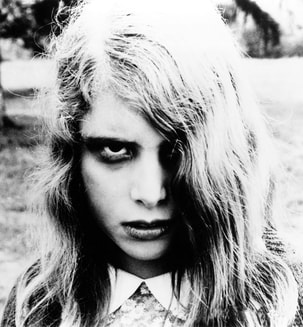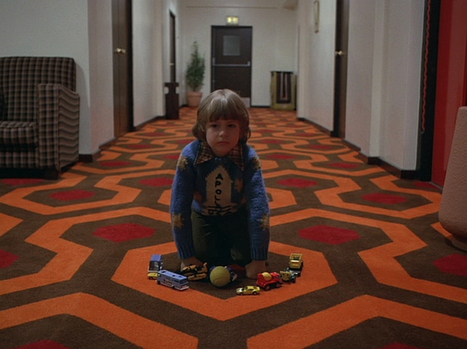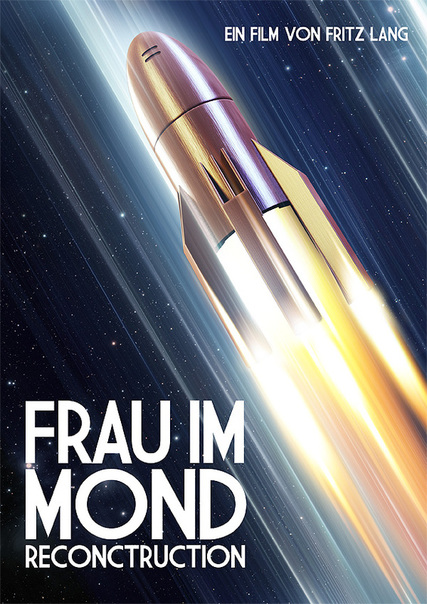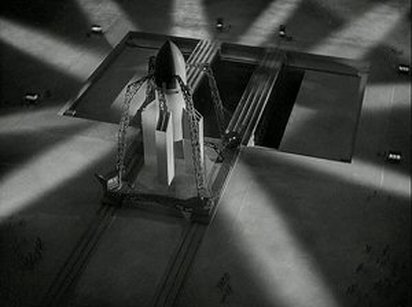By Ian LongHorror offers writers and directors ways to make cinema that's vibrant, powerful and entertaining.
My Writing Horror Now workshop on July 12 aims to refresh the ideas of people who already love the genre - and to help newcomers see its many possibilities. So, to lure you in, here are 6 reasons why you should be writing Horror. 1. The Creative Challenge Horror is an extremely malleable genre which gives writers the chance to reform the world and its possibilities at will. It also blends in interesting ways with other genres. Think of David Cronenberg’s comment that his film THE BROOD (1979) was a more truthful account of a marriage break-up than Robert Benton's KRAMER VS KRAMER, released in the same year. The workshop will look at ways of making new stories from this “blending” process. Take up Horror's creative challenges and give your imagination free rein! 2. Politics, Society, Religion, Sexuality Are you deeply concerned about any of these issues? Do you want to comment on them in ways that will reach large audiences and start debates? The genre’s visceral, unbound quality lets you talk about social and political ideas in ways that are devastating and memorable. Think of recent films like GET OUT and UNDER THE SHADOW. Or older ones like CARRIE, the TEXAS CHAINSAW MASSACRE and JAWS. All of them had intriguing depths and important things to say about the way we're living. Horror cuts to the chase, dealing with deep, primal issues that other genres skate around. 3. Visual and cinematic qualities Horror intensifies stories which might otherwise lack cinematic interest, opening up visual possibilities, heightening emotions, increasing stakes. In other genres, a problem may be talked about, or acted out. In Horror, it’s embodied … by a 'monster'. And it’s up to you how that monster looks, acts and sounds. 4. Popularity with audiences (and critics) Did you know that Horror is the most profitable film genre? Producers are always looking for good, original Horror scripts. And many popular TV shows (DEXTER, HANNIBAL, BEING HUMAN, etc) have strong horror aspects. Lots of the movies that “break out” of their home territories and achieve international success are in the Horror genre (TROLLHUNTER, LET THE RIGHT ONE IN, THE ORPHANAGE). And when the films are good, the critics will also come on board; all these films were very well reviewed. 5. A Great Tradition Horror has no lack of cultural or intellectual credibility. Many great writers have contributed to the genre – from Daphne du Maurier, Susan Hill and Hilary Mantel to Charles Dickens, Franz Kafka and Honoré de Balzac (not forgetting Mary Shelley). Join this gilded roll-call with your own contributions! 6. Horror isn’t polite At times when cultural mores become a little rigid, some outlet is necessary for us to say the unsayable, and to give vent to the dark things that underlie our psychology and culture. Horror is always going to provide these opportunities (humour does something similar - and there's a strange bond between these seemingly very different genres). Use Horror to indulge your inner punk-rocker, to be provocative, and to experiment with divergent ideas. Audiences will love you for it. For more information on the workshop, and to book, click here.
0 Comments
Writing Science Fiction, October 18th with Ian Long You may have seen the documentary Room 237, in which numerous people get to air their more or less crazed theories about Stanley Kubrick’s The Shining - the Rolls Royce of horror films, and itself a kind of mental maze at the centre of which many hapless viewers are still sitting bolt upright, frozen to the spot, much like Jack Torrance at the end of the film. If you have seen Room 237 you’ll remember that one of the more far-fetched hypotheses casts Kubrick’s entire movie as one big confession to his part in faking the footage of the 1969 Apollo Moon landings – a confession partly coded in the Overlook Hotel’s extensive and startlingly patterned carpets. There’s a persistent current of thought that the Apollo landings were staged in a film studio; either because they never happened, or to conceal some unspeakable event which occurred during the actual landing. All ridiculous, of course. But are these ideas entirely berserk, or is there something to them - not so much a grain of truth, as a whiff of rocket-grade kerosene? You may be surprised to learn that the launch of the first fuel-injected rocket – the technology that would eventually take us into space - was projected to be funded from the advertising budget of a science fiction film. And that Werner von Braun, one of the men involved in the planned stunt (which never materialised), would play a large part not only in the Nazi rocket programme, but in the United States’ own race into space. Science Faction? The truth is that cinema and rocket science have always described a joint parabola, with fact and fiction so tightly intertwined that they are surprisingly hard to separate. And a good place to start plotting their trajectory is Fritz Lang’s 1929 Sci-Fi epic, Frau Im Mond (Woman in the Moon), the movie with the ambitious advertising plans. In many ways Lang was a prototype for Kubrick: the autocratic, visionary director given unlimited carte blanche to pursue his pet projects, whether this involved turning a colossal sound-stage at Berlin’s UFA into a forest for a scene in his five-hour version of Die Niebelungen, or making five hundred children stand in a freezing pool of water for fourteen days to shoot the flooding of a city in Metropolis. In Frau Im Mond, his last silent film, Lang made a convincing documentary of an event that wouldn’t happen for more than forty years: the first manned landing on the moon (convincing, that is, until elderly Professor Manfeldt goes on the first moonwalk – pre-empting both Neil Armstrong and Michael Jackson – strikes a few matches to test the atmosphere, then takes off his helmet and strides into a cave where hot springs are bubbling and large, detachable pieces of gold hang from the walls). Leaving this aside, the film is eerily convincing. Not only is there a brilliantly detailed launch scene and a rocket which proceeds by jettisoning its earlier stages, there’s a count-down to zero prior to lift-off. All successfully mimicked from actuality. But of course, there hadn’t yet been any actuality to mimic. In fact, the reverse count-down was invented by Fritz Lang for the movie - and subsequently copied by NASA and other space agencies, who evidently relished the manufactured - not to say theatrical - suspense that it created.
The Nazi regime obviously took Frau Im Mond seriously, because it banned the film in the 1930s, afraid that its details might betray the pattern of the state's own experimental programme. And when the first V-2 rocket launched from the Nazi facility in Peenemünde, the Frau im Mond logo was painted on its base. Given the way in which fact and fiction morph into each other in this area, maybe it’s not so far-fetched to think that Kubrick was more closely involved in the moon landings than he cared to admit. So, next time you watch The Shining, don’t be afraid to have a close look at the carpets – you might learn something. Euroscript Workshop: Writing Science Fiction Conspiracy theories are alternative visions of reality, so they’re a great source of Science Fiction stories - films like The Matrix, Men in Black and Capricorn One and many others have exploited 'conspiratorial' ideas. In our Writing Science Fiction workshop on October 18th we’ll find out a lot more about how Science Fiction stories work, and where to find fresh ideas. An you'll end the day with notes towards your own original story. Book now for our special Early Bird offer! Ian Long |
BLOGTHE ONLY PLACE TO TALK ABOUT THE CRAFT OF SCRIPTWRITING. Archives
November 2023
|
Privacy Policy © Euroscript Limited 2020





 RSS Feed
RSS Feed


